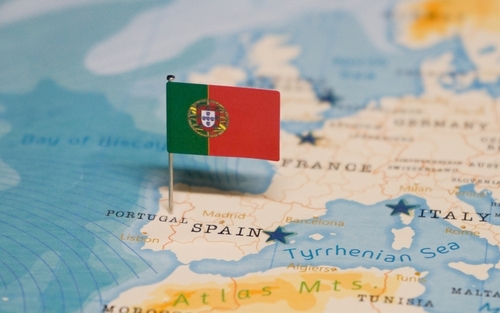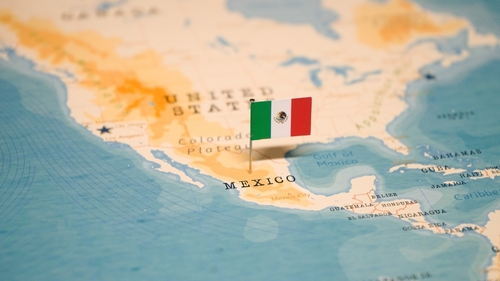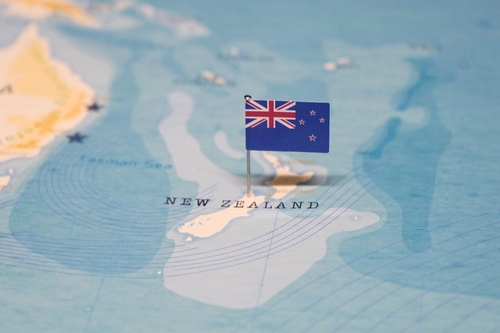Choosing the right country to live in is one of the most important decisions you’ll ever make. If you’re looking for adventure outside Canada, whether you’re a native-born citizen or an immigrant here, you’ll want to make a choice that enables you to thrive.
In this article, we’ll look at five of the best countries for Canadian expats in 2026—places where you can live your dreams and enjoy a lifestyle that fulfils your desire to experience what’s out there in the world.
Our top five countries for Canadians
In no particular order, here are five amazing countries for Canadians looking to move abroad. In making this list, we considered the quality of life, cost of living, and career opportunities in each country, as well as how easy it is for Canadians to settle there.
Let’s take a look at what each country has to offer, as well as the practicalities of moving to each.
Portugal: affordable lifestyle, sunshine and rich culture

Portugal is a land of sunshine and welcoming people. It’s set on the Iberian Peninsula, meaning it has gorgeous beaches to explore and temperate weather. If you live in the south, you’ll be close to warmer waters where you can swim comfortably. In the north, the landscape is lush and green, though temperatures can be chillier in winter.
The pace of life in Portugal is relaxed, especially outside the main cities. It’s also world-renowned for its fine wines and vibrant food scene. No wonder it’s one of our top countries for Canadians!
One of the most important factors in moving abroad is the cost of living, and in Portugal, Canadians have nothing to fear. In fact, Portugal has one of the lowest costs of living in Europe, coming in a fair bit lower than the average.
If you’re planning to move there, it’s a good idea to learn a little Portuguese, especially if you want to live outside the main hubs.
You’ll also want to know what your visa options are. Here’s a quick breakdown:
- Short stay (fewer than 90 days): If you want to take a little exploratory trip before making the decision to move there, Canadians can visit Portugal visa-free for 90 days.
- D7 (passive income visa): If you have stable income from passive sources, such as a pension, rental income, or investments, you can obtain a D7 visa.
- Digital Nomad Visa: Those who work remotely for a non-Portuguese employer and have a stable income can get a Digital Nomad Visa for one or two years at a time.
- D2 Visa and Start-Up Visa: If you have an entrepreneurial spirit, these are the visa options for you, allowing you to start a business in Portugal.
- Tech Visa: This visa is aimed at highly qualified professionals with a job offer from a tech company.
Mexico: proximity, vibrancy, and low costs

If you’d prefer not to move too far away, Mexico is a great choice. It’s not too far from your home country, allowing you to visit family more often or stay in a similar time zone for business reasons.
There are well-established Canadian expat communities. In Lake Chapala, English is widely spoken, and in Puerto Vallarta, the pleasant coastal weather attracts lots of foreigners. In places like these, you’ll get the comfort of a community that shares your language, but you can still enjoy the low cost of living and the vibrant local culture.
Having said that, while you can get by fine in areas with big expat communities, it really does help to learn some Spanish. There are times when you’ll venture out to broader Mexico, where people don’t always speak English. Plus, it shows your respect for the local culture and can help you integrate into your new country.
In terms of the cost of living, you’ll find it’s significantly lower than in Canada. According to Numbeo, Mexico is 49% cheaper excluding rent, and 56.6% cheaper when including rent in your calculations. You can explore diverse landscapes, enjoy world-renowned cuisine, and hang out with friendly locals for a fraction of the cost of life in Canada.
Canadians have several options for visas:
- Short stays (fewer than 180 days): If you want to visit before you decide, Canadians don’t need a visa to enter Mexico for a holiday of up to 180 days.
- Temporary Resident Visa: This visa entitles you to stay up to four years. You’ll need to meet certain financial requirements or have family ties there.
- Permanent Resident Visa: As with the Temporary Resident Visa, you’ll need to prove you can support yourself financially. This offers a longer stay.
New Zealand: adventure with a familiar feel

Canada and New Zealand have many similarities—they’re both English-speaking Commonwealth countries, after all. Among other things in common, they share a love of the outdoors and a generally relaxed attitude towards life. This is all to say that transitioning from Canada to New Zealand can be a smoother journey than others.
New Zealand offers stunning natural scenery, like dramatic mountain ranges, surfing beaches, glaciers, and volcanoes. The people there enjoy an active lifestyle, and the work-life balance is brilliant, meaning you actually get to enjoy all the activities the land has to offer. And it’s one of the safest countries in the world, ranking in the top five in 2025.
The one drawback is that the cost of living there is high, particularly for housing in major cities like Auckland—these costs are comparable to what you’d pay in some Canadian cities. Still, if you can afford your current lifestyle, you should be all right in New Zealand.
So, how do you move there? Let’s look at the visa routes:
- Working Holiday Visa: This one is for younger Canadian travellers, between 18 and 35 years old.
- Accredited Employer Work Visa: If you have a job offer from a New Zealand employer who is accredited to take on foreigners, this is the most appropriate option.
- Skilled Migrant Category: For people in certain skilled jobs who have a job offer and meet specific professional qualifications, this visa offers two years of residency.
- Work to Residence Visa: If your profession is on New Zealand’s green list of highly in-demand jobs—including health workers, teachers, some trades, engineers, and more—you may be eligible for this visa.
Spain: a vibrant lifestyle with excellent healthcare

Spain is widely known for afternoon siestas and delectable tapas. But did you know it has an amazing, accessible public healthcare system, too? There’s so much to love about this Mediterranean country, where family and friends are at the centre of a relaxed way of life.
The country offers a surprising diversity of landscapes and cultures. The Basque Country in northern Spain showcases a verdant green landscape and world-class cuisine, while Andalucia in the south promises beaches, sun, and a welcoming culture.
Outside of the biggest cities like Madrid and Barcelona, the cost of living in Spain is very affordable, making it one of the best countries for Canadians.
Learning the local language is highly advisable, especially if you’re going to live outside of major metropolitan areas. Knowing a little Spanish will take you a long way in making friends and opening professional opportunities. Not to worry if you don’t speak it yet, though; in touristy areas, you can get by with just English at first.
If Spain sounds like your kind of heaven, there are a few visas available:
- Non-Lucrative Visa: If you have enough funds to support yourself without working, this visa is for you. It’s a popular option among retirees.
- Work or Employment Visa: If you have a job offer in Spain and meet certain other requirements, this common visa option is your best choice.
- Digital Nomad Visa: For those employed remotely by a non-Spanish company, meeting certain requirements, this visa allows temporary residence in Spain.
South Korea: tech-forward and full of opportunity

South Korea is increasingly becoming a popular destination for Canadian expats, and it’s easy to see why. It’s home to a vibrant culture of globally beloved pop music, incredible food, a hyper-efficient public transport system, and a bustling city life. It’s also a relatively safe place for foreigners to live.
It’s not without its challenges, though. Korea might be one of the best countries for Canadian expats in 2026, but you’ll need to know at least basic Korean to get by. English isn’t as widely spoken as in some of the other countries on our list, so knowing the local language is vital for a successful settlement.
Additionally, if you’re going to work there, you’ll need to get ready for a fast-paced work culture. Historically, work-life balance hasn’t been great. But the country is working on changing this, with government and private sector initiatives that promote flexible and reduced hours.
If you’re in tech or education, Korea is definitely worth considering, as the job opportunities for these professions are growing quickly.
Visa routes for Canadians include:
- Professional (E-Series) Visa: This visa is basically targeted at teachers—there is high demand for English teachers in the country.
- Working Holiday Visa: If you’re between 18 and 35 years old, you can work in South Korea for a year or longer.
- International Co-Op (D-10-3) Visa: This is aimed at Canadian citizens who are recent graduates or current students with an internship in an advanced technology field.
Find your new home in 2026
Whether you’re seeking a fast-paced, modern culture or a laid-back, easy-going lifestyle, our list of the best countries for Canadian expats in 2026 has something for everyone.
Portugal offers affordability and a rich food and wine culture; Mexico is fairly close to Canada and has several Canadian expat communities; New Zealand gives expats outdoor adventure and everyday safety; Spain provides a casual atmosphere and excellent public healthcare; and finally, South Korea is known for its modern, busy culture with a work-hard, play-hard attitude.
No matter where you choose to go—one of the countries on our list or somewhere else—living a happy expat life is possible with careful planning and research.
FAQs
Do I need a visa or residency permit for my destination country?
For most of the countries on this list, going for a short stay comes with relatively little red tape. If you plan to stay longer, whether to work or retire, you’ll need a special visa depending on your unique circumstances.
Can I keep my Canadian citizenship if I become a citizen of another country?
Canada allows dual citizenship, so yes, you can typically keep your Canadian citizenship if you eventually become a citizen of another country.
Will I be taxed on my Canadian income after I leave?
It depends on your tax residency and whether your new country has a tax agreement with Canada. Check the laws of the country where you’re moving to and consider asking a professional tax consultant.
Do I need to inform the Canadian government if I immigrate?
Yes, when you emigrate from Canada, you need to inform the Canada Revenue Agency (CRA) that you’re leaving. This is so that the government can determine whether or not you’ll still be a Canadian tax resident. You may need to file one final tax return, too, known as the Departure Return, before you leave.
